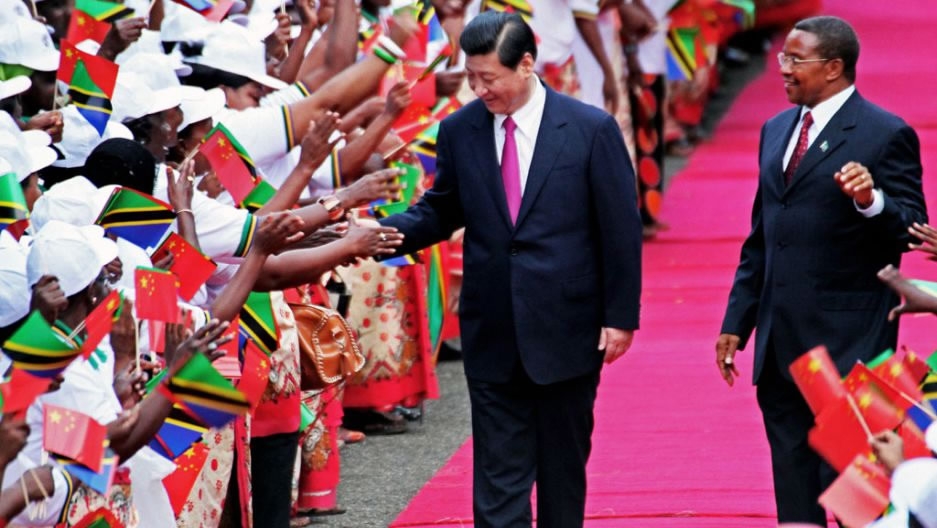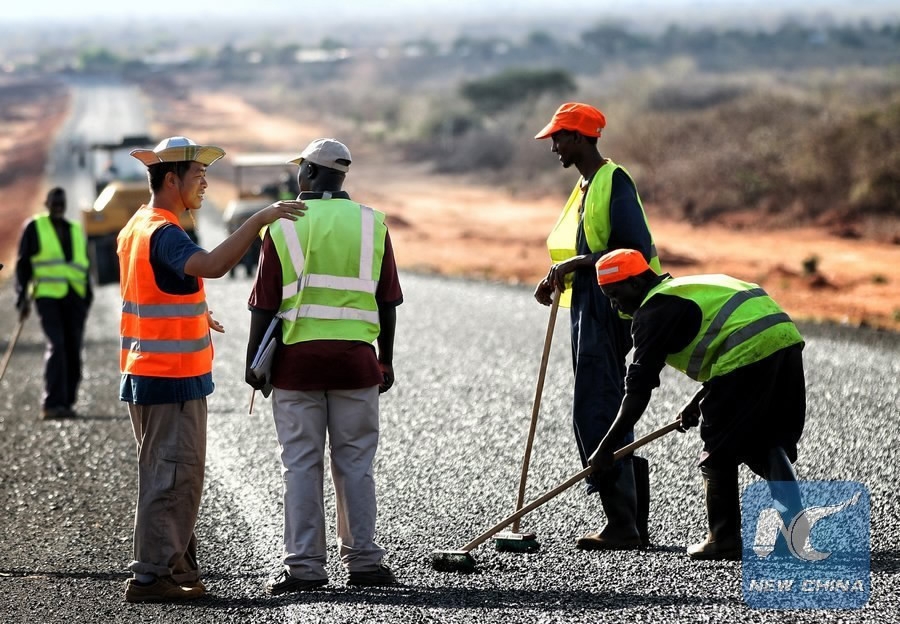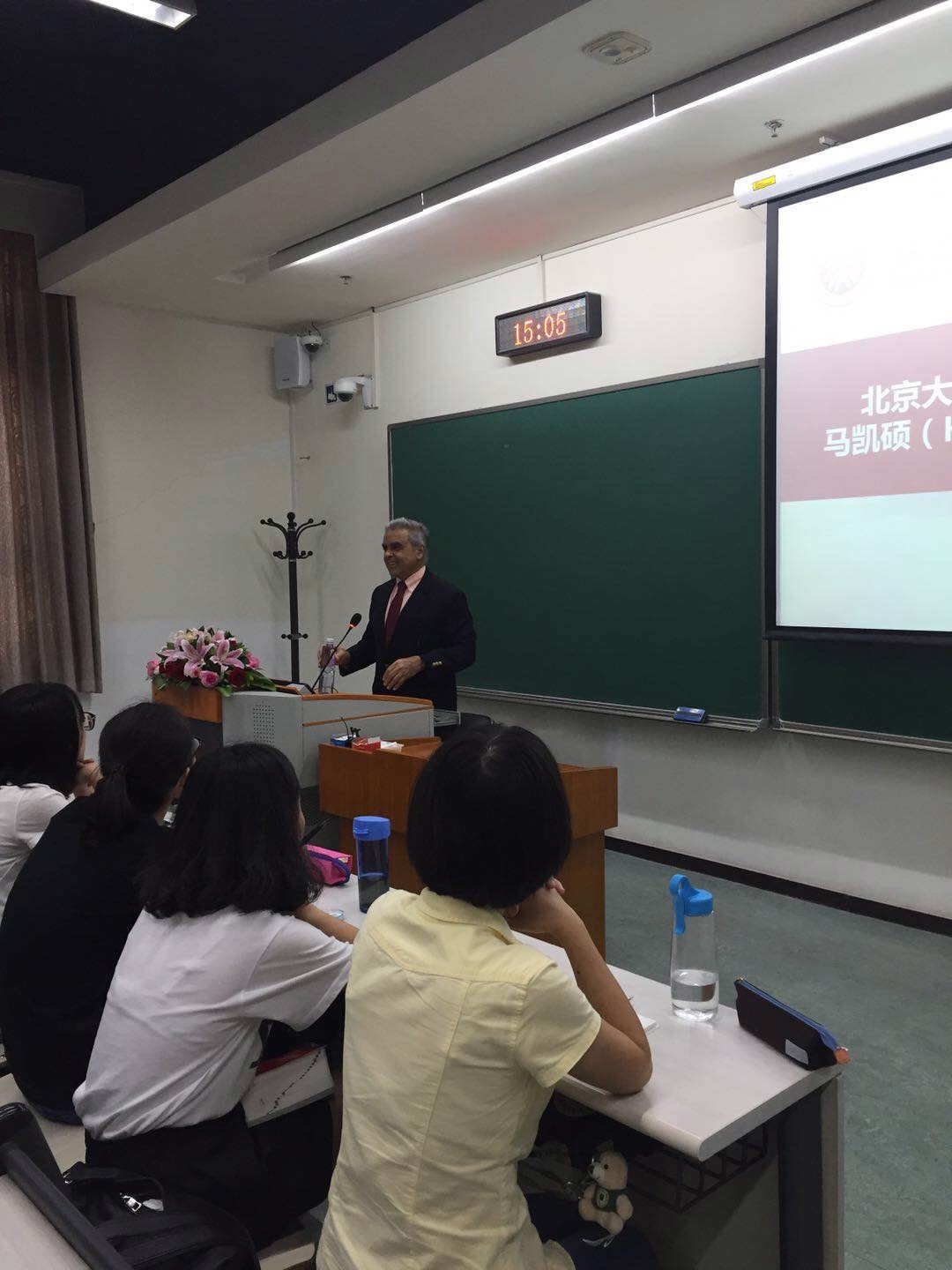
World
19:49, 25-Sep-2017
Building Africa’s future – looking to Asia for lessons
CGTN

The burgeoning relationship between China and Africa – China is now Africa’s largest trading partner, having surpassed the United States in 2009 – has sparked questions about whether Chinese development is actually beneficial for the African continent.
In a series of talks at Beijing-based Peking University, Singaporean academic and former diplomat Kishore Mahbubani argued that even though China has contributed immensely to Africa’s development, it should be mindful and sensitive to the continent’s political pulse.
Describing China’s involvement and infrastructure-building in Africa as positive, the dean of the Lee Kuan Yew School of Public Policy at the National University of Singapore said the Asian giant should nonetheless remain sensitive as its large economic presence “might lead to resentment not just in Africa but also elsewhere.”

Workers work on the Turbi-Moyale road in Kenya on March 5, 2016./ Xinhua Photo
Workers work on the Turbi-Moyale road in Kenya on March 5, 2016./ Xinhua Photo
While African leaders acknowledge China’s beneficial and valuable contribution, Mahbubani noted that many of these leaders have to be elected and answerable to their electorate.
“It is therefore important for China to understand the local political dynamics and conduct their affairs on the continent carefully,” warned Mahbubani.
As the African continent continues to grow economically, Mahbubani noted that African countries are taking lessons from Asia, rather than the West. Comparing African and Arab countries, he stated, “The Arabs continue to send their students to Europe instead of Asia. They should stop going there. Europe is the past, while Asia is the future.”
“More Africans are coming to learn from Asia. Leaders of Rwanda want their country to become the Singapore of Africa. African countries are keen to find the best model that works for them,” said the professor.
Mahbubani has previously argued that the West and its institutions need to make room for rising Asian powers. Alluding to this theme in his talk, Mahbubani urged the West to “open their mind and listen to the rest [of the world].”

Kishore Mahbubani held a series of talks at Peking University on September 20-25, 2017. / CGTN Photo
Kishore Mahbubani held a series of talks at Peking University on September 20-25, 2017. / CGTN Photo
Remarking that the West has already enjoyed 200 years of what he called “unusual and artificial domination”, Mahbubani acknowledged that the West has created and shared public goods with the rest of the world that has allowed many countries to succeed.
“However, the West has refused to accept that the world has changed fundamentally and still wants to control and dominate important institutions such as the International Monetary Fund and the World Bank.”
“The western rhetoric is beautiful. They speak of global equality, opportunities and meritocracy. But [ultimately] they do not want to give up their control.”
The former Singaporean diplomat warned that the refusal of the West to share power with the rest of the world is likely to have negative ramifications and might even lead to further global troubles.
Professor Mahbubani is the author of several books including: Can Asians Think?, Beyond The Age of Innocence: Rebuilding Trust between America and the World, The New Asian Hemisphere: The irresistible shift of global power to the East, and The Great Convergence: Asia, the West, and the Logic of One World.

SITEMAP
Copyright © 2018 CGTN. Beijing ICP prepared NO.16065310-3
Copyright © 2018 CGTN. Beijing ICP prepared NO.16065310-3